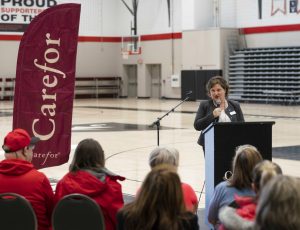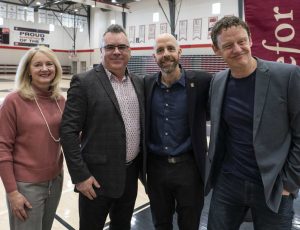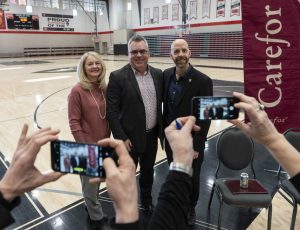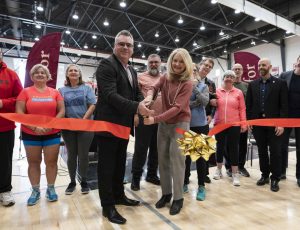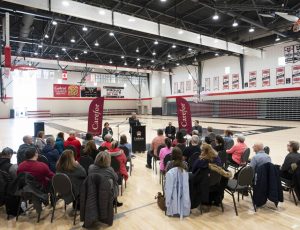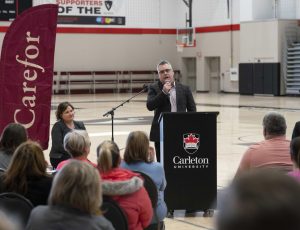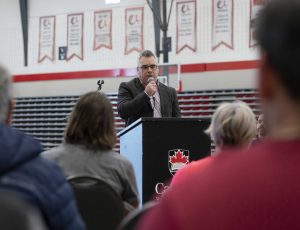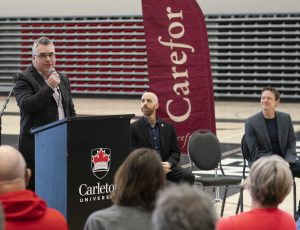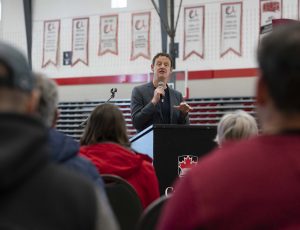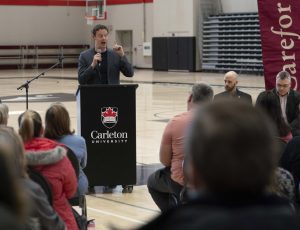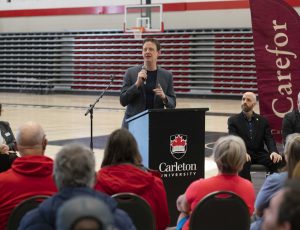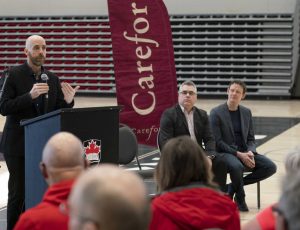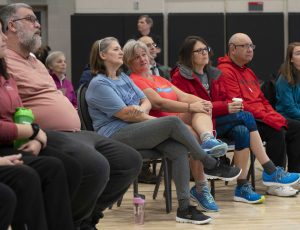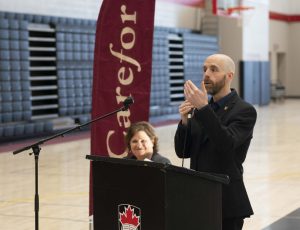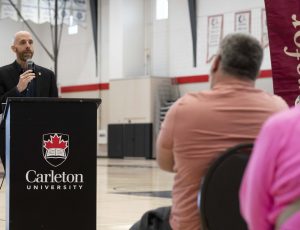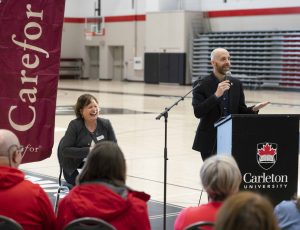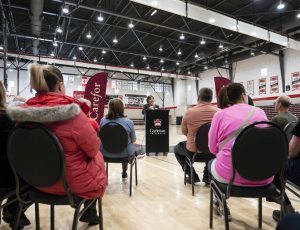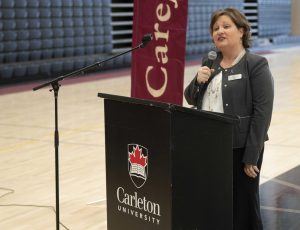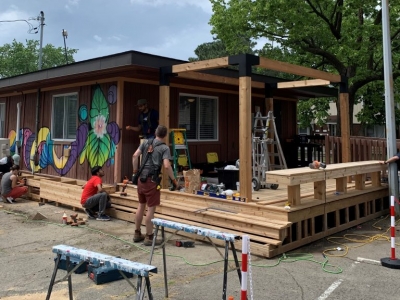More than half a million Canadians are living with dementia and the costs of caring for them can be steep. Out-of-pocket caregiving costs are currently more than $10 billion per year and expected to rise significantly as our population ages.
Most people diagnosed with dementia are senior citizens, but not all of them. Young onset dementia affects people in their forties and fifties, and it creates a unique set of challenges. Most resources were developed with an older demographic in mind. Far fewer programs exist for 16,000 younger Canadians who live with dementia.
A new partnership at Carleton University has created one. The university’s athletics facilities are teaming up with Carefor Health Community Services on a program called The Club. Each Tuesday, Carleton’s facilities open their doors to people living with young onset dementia. The Club will help them stay active and socially engaged by connecting them with trainers and giving them access to facilities, including Carleton’s gym, field house and pool.
It’s the first initiative of its kind in the Ottawa area and it officially launched in Carleton’s Ravens’ Nest on Tuesday, Jan. 21, 2020.
“There are programs for older people, but there are not a lot of places younger people with dementia,” said Robin Meyers, Carefor’s director of Community Support Services.
“The Club will bring people together to have peer support and to be physically engaged. A lot of the participants would otherwise be stuck at home with nothing else to do. Research tells us that if we stay physically active, we can probably slow the advance of dementia. One of the side effects related to dementia is that it makes you want to isolate yourself. Many of the club members wouldn’t be able to navigate using their local gym on their own. They need staff to help them. But once they get there, they can do it.”
When Carefor approached Carleton’s Mark DeBruyn, assistant director of business development in Athletics, about launching the program, he immediately saw the idea’s potential.
“I asked them to tell me what they wanted and told them we could build it together,” says DeBruyn.
“When you don’t put restrictions on a program like this, it can be very easy to build. Some stuff will stand up, and some stuff will fall down, but for Carleton, The Club’s success isn’t monetary. This is about doing something for the community, creating something that doesn’t already exist. Most of the acknowledgement should go to Carefor — they’re doing great work. We’re happy to provide our instructors and facilities. We have the space.”
It’s the kind of community-oriented health initiative that Carleton welcomes.
“We are always looking for ways to break down some of the barriers that people with significant health challenges face,” says Carleton President Benoit-Antoine Bacon.
“We want to partner with communities to do good. Relationships like this one are important for social innovation, community development and to advance research. And they provide an opportunity for students and faculty to help make the world a better place.”
Thursday, January 23, 2020 in Athletics
Share: Twitter, Facebook
